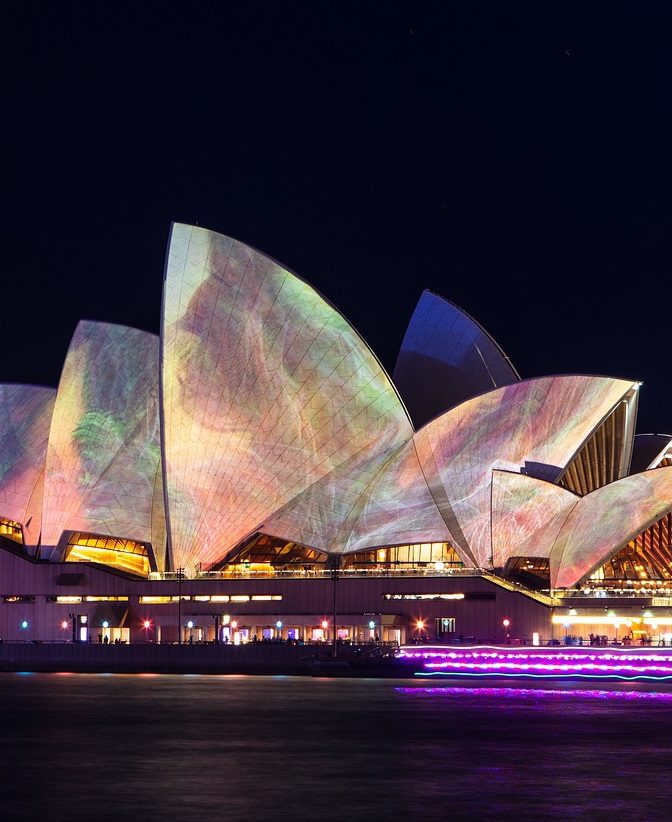Rolling Kitchens is a five-day food festival in a ‘culture park’ north west of the centre. I’ve barely time to be heartened by the banner above the entrance, which shows a plump lobster on wheels, before I’m enveloped by noise, smell and colour. Scores of open-sided trucks — row upon row of them — are serving food cooked at little hobs or on coal-fired grills, while musicians bang drums or strum guitars outside. Every corner of the globe is covered. There’s Indian cuisine at the Bollyfoods van (slogan: ‘Get curried away!’) and Vietnamese street food at Nom Nom. Let’s Salsa has Mexican tacos, Just Say Cheese (Sweet dreams ate made of cheese, who am I to diss a brie!’) offers cheeseburgers, and Everything on a Stick is exactly as described.

I pass Duck & More (‘Not just duck!’), MrBrasa (‘We smoke it all!’), Shrimp & Co and Dutch Weed Burger (made from seaweed rather than the other sort) before finally reaching the truck I’m after. Even with all the weird and wonderful foods around it, the Kitchen oft he Unwanted Animal still swivels heads. Where else can you wash a My Little Pony Burger down with a glass of Japanese knot weed juice? Its origins are as unorthodox as its menu. ‘I’m a conceptual artist, not a cook,”says founder Rob Hagenouw, handing me a goose croquette. “My kitchen was meant as a statement.”
Rob is pained by society’s profligacy. On discovering that geese shot at Schipol airport — to cut the risk of bird strikes — were simply thrown away, he decided to highlight the waste by creating something tasty from these unwanted animals. Hence his croquette, which is creamy inside with a spicy coating. After that, he turned to other ‘pests’: musk rat s, city pigeons, parakeets, even the ponies abandoned by cash-st tapped owners during the financial crisis. His van goes down a storm at festivals. “Kids dive straight into the pony burgers — it’s the mothers who aren’t so sure!” “And canal lobster?” I ask, hopes raised like pastry on a parakeet pie. “Yes,” says Rob. “But I don’t have any here. Your best bet might be Restaurant As.”

Thwarted again, I seek consolation in a coffee at t he Grand Hotel Amrâth Amsterdam, Originally built in 1912 as the headquarters for a number of the city’s shipping companies, t his is a place dripping with symbols of the Golden Age, from the world map in its stained glass roof to the billowing sails in its mahogany panels. But what also strikes me is that it represents the last gasp of a glorious maritime era — the shipping companies having shipped out long ago, their offices now given over to guest rooms. It’s a similar story elsewhere. NDSM Wharf — Amsterdam’s biggest shipyard before it went bankrupt in the 1980s — is now a gritty hub of contemporary art. The industrial wasteland behind Amsterdam Centraal has been transformed by the space-age architecture of the EYE Film Institute Netherlands, while the oil refinery tower next door has just reopened as the A’DAM Toren, its focus on cutting-edge music.
Perhaps this is the new Golden Age, a waterfront renaissance driven by culture and food, an age of experiment and urban expression whose eddies and swirls will throw up their very own Dutch masters to be lauded in years to come. But t hat’s for the passage of time. Right now, I’ve a dinner reservation to keep. An hour later, and there it is at last, pinky-red against the bucket, pincers raised at me with justified mistrust. This is one of several caught last night for the restaurant by Rick Kruyswyk, who’s brought it to the table for me to see before it’s dispatched to the pot with the others. A canal lobster. Or, more properly, a red swamp crayfish, an invasive species originally from the US that’s flourishing in the cleaner water of the canals.

I feel a pang of sympathy for the condemned as the crayfish eyes me from his container, but the pang quickly disappears when I reach out to pick him up and he clamps his claws onto my finger. In bet ween the yells (mine) and stifled giggles (his), Rick explains there’s no place for sentimentality. “Red crayfish eat fish eggs, they kill the native European crayfish, and they dig holes in the dykes. It’s our duty to eat them!” So, when Luuk Langendijk — the chef here at Restaurant As — brings me a starter of crayfish tails with a mustard dip, I grab a fork and do my duty. Then I do it again by consuming a main course of cray fish bouillon wit h ribbons of white asparagus. The meat is sweet, a touch smoky, and quite delicious. As the plates are cleared, I ponder how many other people can claim to have been bitten by their own dinner. For all the canal lobster’s allure, I decide the van Loons had it right. It’s safer to stick to herring.












